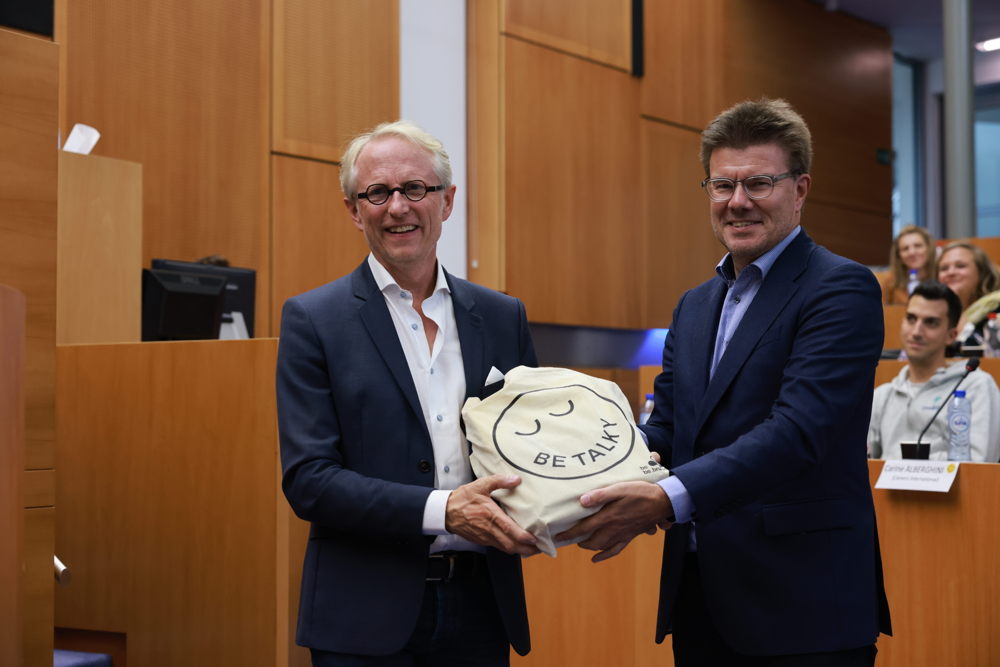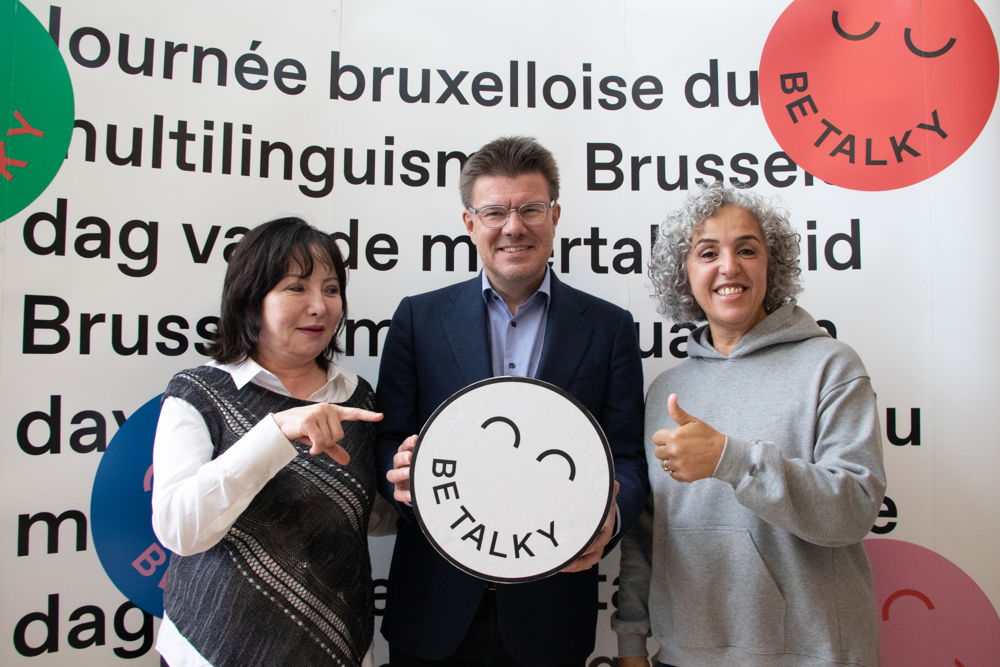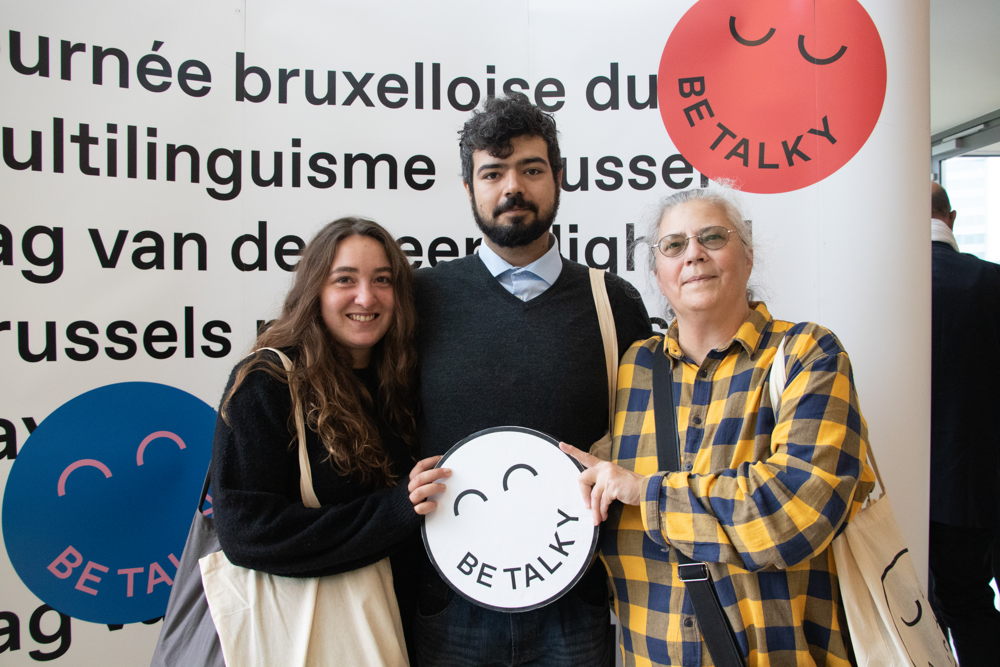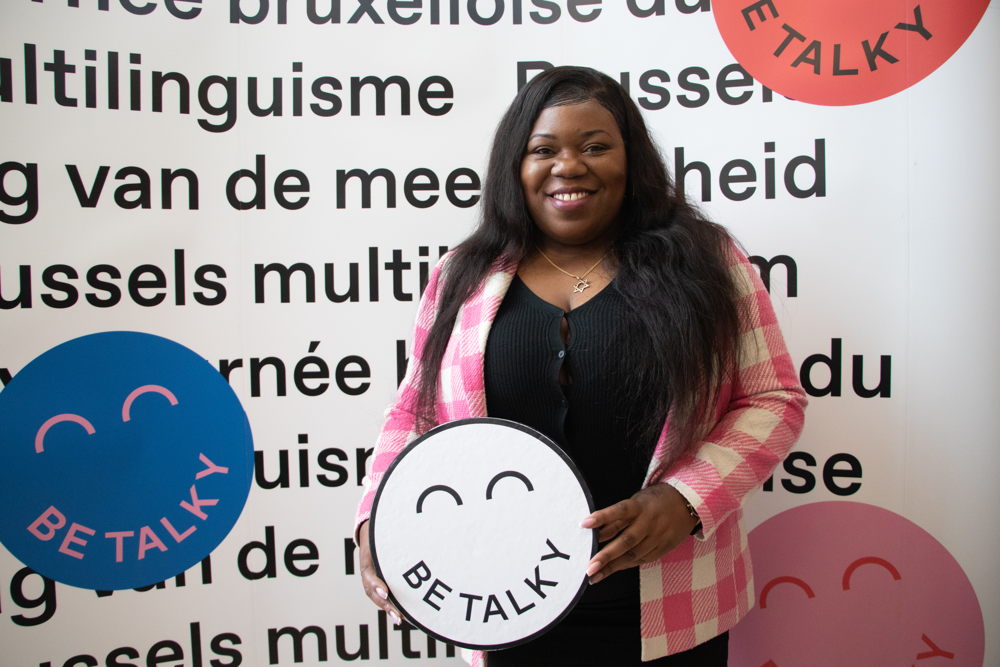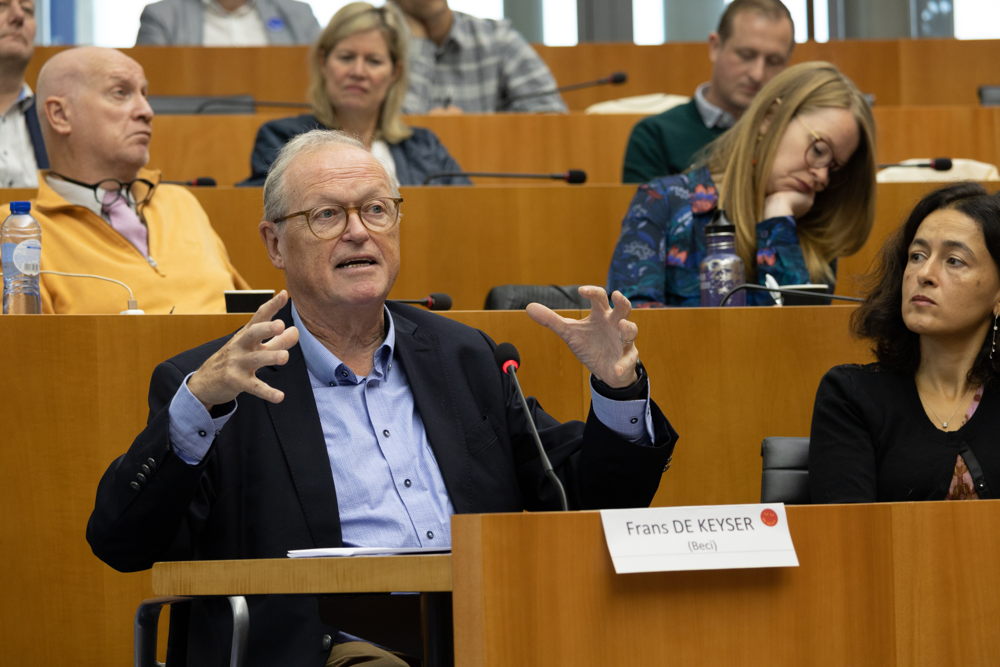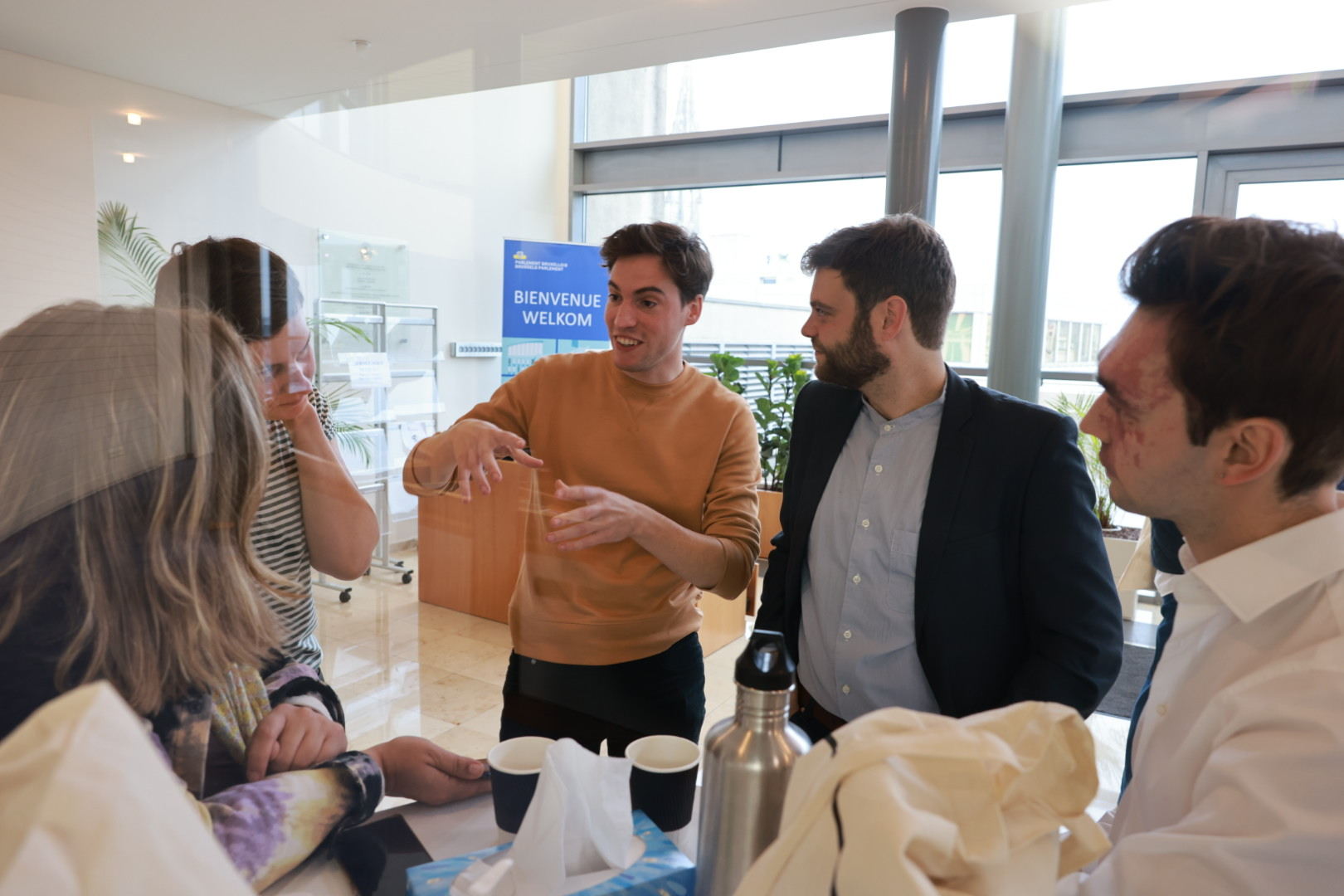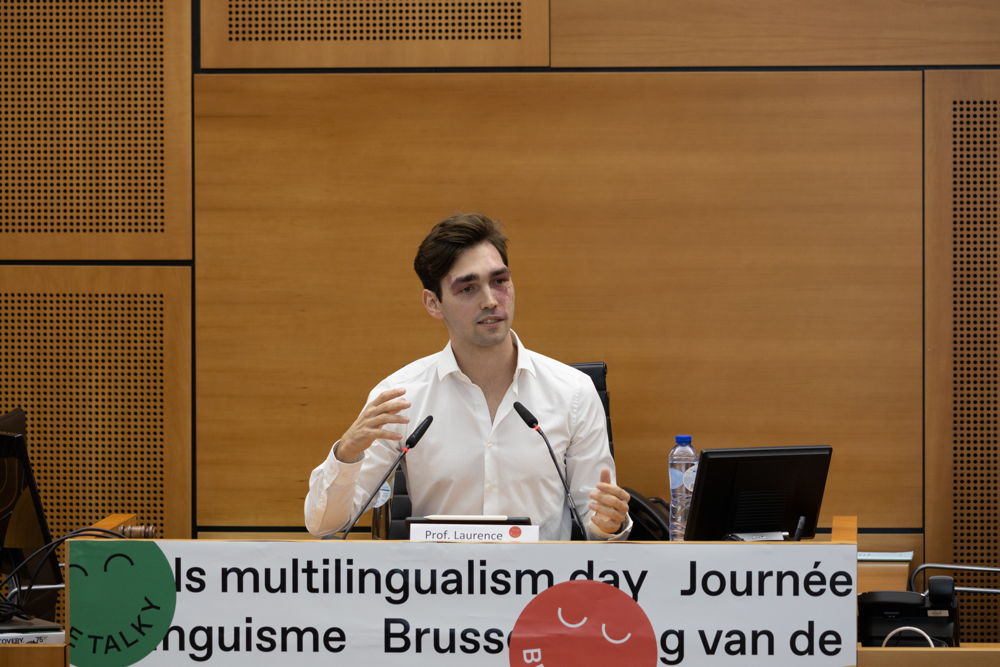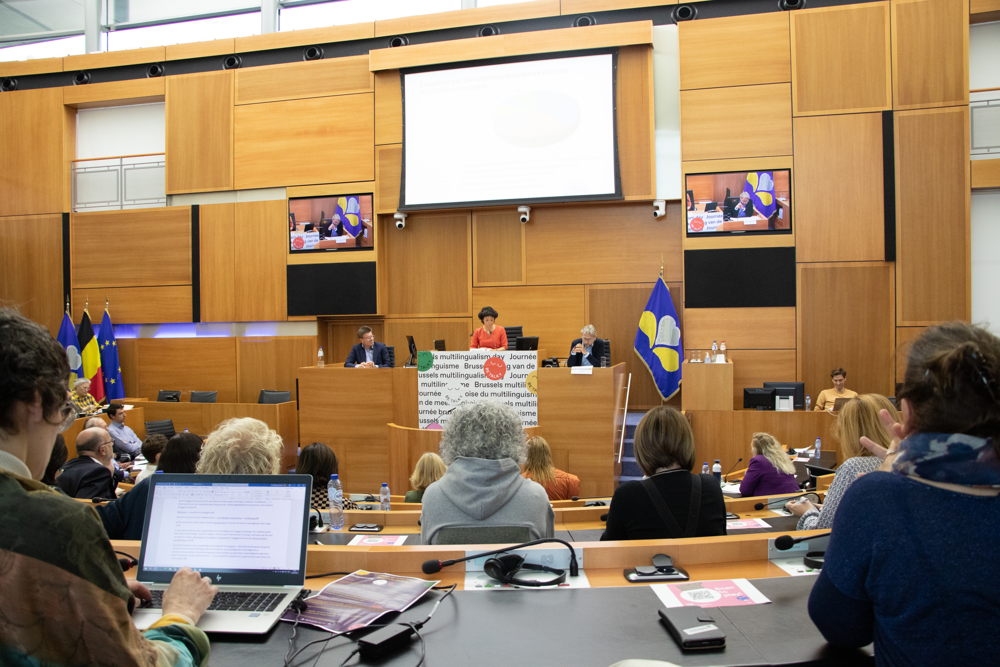Multilingualism at work takes centre stage during the third Brussels Multilingualism Day
On Saturday, the third Multilingualism Day took place in the Brussels parliament. Under the motto 'BeTalky@Work', the central topic of discussion was multilingualism in the business world. The winning projects of the project call on multilingualism in companies were also announced.
The Brussels Multilingualism Day is an annual event to highlight multilingualism in Brussels. Its initiator is Brussels Minister in charge of Promoting Multilingualism, Sven Gatz. The previous days were marked, among other things, by the establishment of the Council for Multilingualism, chaired by Professor Philippe Van Parijs, the launch of the BeTalky platform and multilingualism in education.
The impact of multilingualism on the Brussels business community can hardly be underestimated and therefore deserves due attention. Multilingualism is not only an extra asset for companies, it is vital to the success of their economic activities.
The day took place in the Brussels parliament, with the presentation of a study on multilingualism in companies, a debate with academics, interest groups UNIZO, BECI and CEVORA, the results of the BeTalky@Work project call for companies, and a quiz. The highlight was keynote speaker Thierry Geerts, ceo of Google Belgium who spoke about multilingualism in the digital world. This year's hostess was Valerie Thys.
Language of corporate websites
After a video-messaged welcome speech by the president of the parliament, Multilingualism Day started with researcher at the VUB Mathis Saeys highlighting multilingualism in business on the basis of a comparison of language use on websites of companies in the Brussels Metropolitan Region. He found no less than 59 language combinations with 41 different languages. For the Brussels Region, 16,44% of websites are monolingual, 30,67% bilingual and 42,67% multilingual. In the Vlaamse Rand, due to advancing internationalisation, as many as 44,54% of websites are multilingual, with a predominance of English; 60% in the region combine Dutch, English and French.
(More info from Mathis Saeys: mathis.saeys@vub.be)
The first debate of the morning explored language use and language needs in Brussels business, with Minister Sven Gatz, Prof Laurence Mettewie (Unamur), Sara Mathijs (Upeo Consulting), Anton Van Assche (UNIZO) and Frans De Keyser (BECI). It showed that multilingualism has become the norm in companies, that companies have difficulty finding multilingual staff, that multilingualism entails costs for the company, that a lack of multilingual staff does lead to the loss of contracts and that multilingualism has become indispensable for the development of economic activities for companies operating in an international and cosmopolitan context.
The second debate delved deeper into language training with Carine Alberghini (Careers International), Didier Boulvin (Coddy), Yannick Van Aelst (Besix), Dorien De Man (Europe Hospitals) and Cristina Bonari (CEVORA). What is the best way to recruit multilingual staff? What does a multilingual policy in a company actually entail? What are companies' training needs? How to encourage employees to work multilingually?....
Project grants awarded
During Multilingualism Day, the winners of the BeTalky@Work project call were also announced. A jury presented these six candidates from 21 entries to the Brussels government, which divided a total of 114.728 euros among the projects:
- Silversquare - EUR 20.000
Silversquare is the pioneer of coworking spaces. The company works with artists and designers to add an extra touch to the workplace. Silversquare operates 7 co-working spaces, geographically spread across the Brussels Capital Region. Silversquare aims to use all its assets and experience to promote multilingualism in the Brussels region by organising thematic conversation tables in French, Dutch and English.
- DaarDaar - EUR 23.070
DaarDaar is an informative website offering French translations of editorial articles from the Dutch- and German-language press. DaarDaar built a teambuilding activity aimed at companies with French- and Dutch-speaking employees, in the form of a bilingual quiz from the Flemish programme "De Slimste Mens Ter Wereld". Team-building participants will have the opportunity to become familiar with the culture of the other community. This activity is planned for 25 employees and lasts 3 hours.
- Iris Group - EUR 25.000
Based on visual and auditory information, their aim will be to make employees, regardless of their mother tongue, understand some basic words (related to safety) in Dutch and/or French. Specifically, images and videos will be used to outline situations that may occur in the workplace, specifically focused on safety. This method can also be copied for other issues: basic concepts such as stop, wait, start, watch out, work, clean up, paint; concepts such as refectory, shower, desk, eat, drink, pause; tools: brush, hammer, scissors, knife, ...
- WPP - EUR 99.756.00
WPP organises two 12-week language courses during which colleagues can brush up on and optimise their French or Dutch. Using a 'blended learning method', colleagues are supported both physically and digitally. WPP is moving away from the traditional way of teaching, by using an efficient interaction between the digital and physical realm. In addition, colleagues will have the opportunity to immediately put their acquired language skills into practice during the WPP Connect dinner. The WPP Connect Dinner is expanded, reframed and promoted via social media and has over 20.000 followers.
- Josworld - EUR 14.580
In the office, with clients, with partners and with trainees, three languages are spoken interchangeably (NL-FR- ENG). However, not everyone masters the three languages equally well. This creates barriers. To address this, Josworld wants to map its organisation's language data. A tool is being developed to analyse language data and bring the weaknesses to the surface. If the results are successful, the developed tools and instruments can be expanded and used in other companies and organisations.
- Womenpreneur - EUR 22.322
Womenpreneur developed two actions. The first action is an awareness-raising campaign. The second action consists in the organisation of three events to promote multilingualism :
- the organisation of a permanent presence in the offices of Womenpreneur
- a bilingual speed-dating between women entrepreneurs
- a workshop, limited to 8 people, to learn how to create a professional bilingual French/English website.
Homo Digitalis and multilingualism
Keynote speaker Thierry Geerts, the ceo of Google Belgium, stressed the importance of multilingualism for an international city like Brussels. According to him, it is important to nurture and encourage multilingualism; besides, those who are multilingual have it much easier to find a job. Moreover, digital developments can help increase multilingualism.
The closing word was for Minister Sven Gatz:
"This third Multilingualism Day has undoubtedly contributed to a better understanding of all aspects of multilingualism in Brussels companies: finding suitable staff; the right training courses; building a successful multilingualism policy in a company; the need for multilingualism so as to provide the best possible customer service... And it is clear that Brussels is continuing to develop economically into an international and cosmopolitan city, which is a huge asset for multilingualism."
Eva Vanhengel
